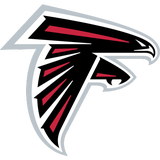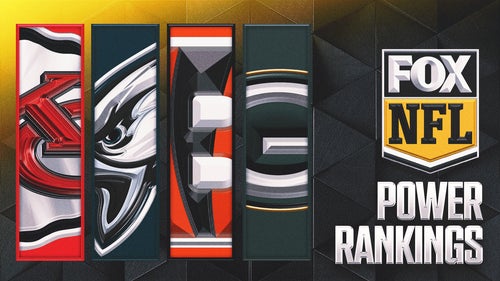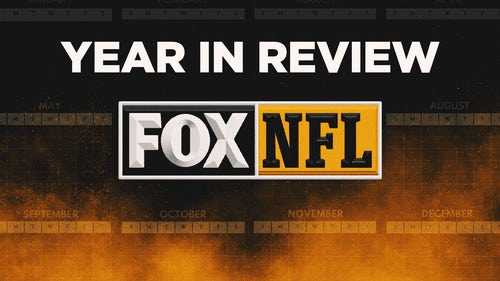
Jeff Pearlman talks Brett Favre book, Donald Trump and more

Over the last calendar year, Brett Favre has returned to the national scene. Last November, he was inducted into the Packers Ring of Honor and this past summer Favre was inducted into the Pro Football Hall of Fame.
On October 25th, author Jeff Pearlman’s book on the quarterback will hit newsstands and bookstores.
I had a chance to talk with him about Favre, the book the current state of sports in America as well as updates on his next book about the USFL.
NEW ORLEANS – JANUARY 26: Quarterback Brett Favre #4 of the Green Bay Packers celebrates his first quarter touchdown pass to wide receiver Andre Rison #26 in Super Bowl XXXI against the New England Patriots at the Louisiana Superdome on January 26, 1997 in New Orleans, Louisiana. The Packers won 35-21. (Photo by Andy Hayt/Getty Images)
Warning: Some explicit language below
Andrew Hammond: In the book “Gunslinger”, one of the big stories of the book is the relationship that Favre had with Aaron Rodgers. We had heard rumors of it being so icy and pretty cold. Were you surprised on just how icy it really was?
Jeff Pearlman: Not really. It’s not an uncommon dynamic—in life, beyond football. I mean, back when I was 22 I started as a writer at The Tennessean in Nashville. I was young and cocky and insufferable, and I thought the older reporters sucked. Now that I’m older, I look at young and cocky and want to vomit. That’s basically what it was with Favre and Rodgers. Rodgers thought he was the shit; Favre was defending his turf. Nobody was fully right or wrong. They just … were.
AH: When Brett Favre’s father passed, we’d heard about the relationship he and Brett had. In your research for the book, what are some more things we learn about Irv Favre.
JP: Well, he was a pretty bad husband, and as a father he genuinely loved his kids, but oftentimes treated his sons like pieces of meat, not children with emotions, feelings. He drank too much, bragged a ton about Brett, thought kids needed to be hardened, toughened up; that it was his primary job to do so. The wife could handle the rest.
I think, in many ways, Brett was Irv, but a lightened version. Brett is more emotional, more affectionate. But, like his father, he drank too much; he wasn’t a faithful husband, he viewed sports in an unrealistic prism.
AH: Brett had been one of the more engaging personalities with the media during his career, was it pretty easy to get him to open up about stuff in his career? Anything you had difficulty with in your interviews on him or anybody else?
JP: Well, he didn’t talk for the book—so that was something. I reached out to him early on; sent him some of my books and a letter. Then I had two or three arranged times with him, and was blown off. Then I sent him another letter, and he sent me a text, explaining that he didn’t wish to talk. I’m not mad—it’s his right, obviously. Plus, his family members were amazingly open and cool. So that worked out for me.
AH: Will readers of the book be surprised to learn anything that maybe the mass audience didn’t know before?
JP: Yes. A ton. I mean, you don’t go into a book and report it to death to learn nothing. I think there’s a lot here. I really do.
AH: As someone who’s covered the NFL and watched the NFL for some time, if Brett Favre the last of a dying breed? Would you consider him the last “rebel” QB of the NFL?
JP: Nope. I actually loathe those tags. I remember, back when Matt Leinart was a rookie, some magazine put him on the cover with the headline CAN MATT LEINART SAVE THE NFL? And I remember thinking–God, that’s some stupid shit. Sports are wonderful and cool and awesome—but they’re also prime turf for repetitiveness. I mean, Johnny Manziel was terrible, but he was a “rebel quarterback.” What goes around comes around …
AH: The Favre post-Packers run was entertaining as it was competitive on the field. This will be the first time he talks about it in detail, this might be obvious but do you think he regrets going to the Jets instead of just hanging it up.
JP: Well, again, I didn’t interview him. But I know the answer—no. No way. First, the Jet year was the gateway to the first Viking season, and he played brilliantly, loved the team, the culture, beating the Packers twice. Definitely no regret whatsoever. Plus, he doesn’t really do regret in that way.
Sep 26, 2016; Hempstead, NY, USA; Republican presidential candidate Donald Trump speaks on stage during the first presidential debate at Hofstra University. Mandatory Credit: Robert Deutsch-USA TODAY NETWORK
AH: You’ve started on a book about the USFL, how has that process been and when can we expect it to come out?
JP: Well, I’m fucked. It’s due in January and I’m way behind because of the Favre PR. But it’s been a joy; like diving back into my childhood and taking a swim. I love everything about the USFL—the unis, the colors, the names, the weirdness. Such a labor of love.
AH: Donald Trump was one of the biggest players in USFL’s rise and fall, do you think he had the league’s best intentions from the start or do you think he was looking to destroy the league by bringing it to the fall.
JP: No, never. He wanted to wind up in the NFL—period. That was it. He didn’t care about the league, the other owners. He was a greedy asshole who thought he could buy his way into the big league. But, ultimately, he could not.
AH: In your book will you go into more detail about John Bassett? Not many people who followed the league and it’s history know about him.
JP: Of course, man. Great owner, great man, had the league’s best interests at heart, then got cancer and Trump stomped over him. I interviewed his son for the book, as well as many friends and colleagues. Best owner in the USFL.
AH: Thoughts on Colin Kaepernick’s protest and Nigel Hayes talking about college athletes wanting to get more money from the NCAA.
JP: I’ve loved the protests. You know a protest is working when people seem fidgety and uncomfortable. Bingo. We’ve talked about it with our kids, as have thousands of other families. That’s a beautiful thing. And college athletes in revenue-generating sports should get a slice. They really should. Or be allowed to jump straight to the pro leagues.
More from FanSided
This article originally appeared on











